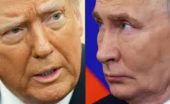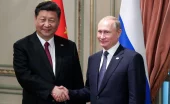Johannah Bernstein post: "eternally proud of my father’s extraordinary aeronautical engineering. legacy. here is a photo of the Canadair Water…
Wednesday Night #1696
Written by Diana Thebaud Nicholson // September 3, 2014 // Wednesday Nights // Comments Off on Wednesday Night #1696
As we contemplate the increasingly vitriolic rhetoric surrounding international affairs and domestic politics, we are reminded of the wise words of the late Robert Stewart in The Duty of Civility, one of the most-read-ever essays published in the superb RBC Letter that for many years was edited by Robert. Written in 1995, it is as applicable to today’s world – and perhaps even more so – as it was then. We would advise every public figure and partisan around the world to print it out and carry it with him/her.
La rentrée: Kimon Valaskakis is back in Montreal and will be with us this Wednesday. His latest blog in HuffPost The Summer of Our Discontent gives a more-in-sorrow-than-in-anger tour d’horizon of the lose-lose policies pursued by Israel and Gaza. On the flip side of his article, he had a lovely time on his Baltic cruise!
September 1st, this year celebrated as Labo(u)r Day in North America, is remembered every year in Europe as the anniversary of the invasion of Poland and start of World War II.
In Ukraine, there is a very gloomy outlook for resolution of the conflict between Europe/NATO/Kiev and Russia/Eastern Ukraine. (Ukraine Warns of Europe’s Worst Conflict Since World War II) Ironically, the new president of the European Council is Donald Tusk: A Champion for Eastern Europe. Ominously, in the past few days, Russian troops bearing the flag of a previously unknown country, Novorossiya, have marched across the border of southeastern Ukraine. The Russian Academy of Sciences recently announced it will publish a history of Novorossiya this autumn, presumably tracing its origins back to Catherine the Great. Various maps of Novorossiya are said to be circulating in Moscow (Anne Applebaum: War in Europe is not a hysterical idea). Moreover, on Tuesday, it was reported that EU Commission President Jose Manuel Barroso claimed that Russian President Vladimir Putin responded to questions about troops in Ukraine — which he has denied — by claiming that Russian forces could take the capital of Kiev in two weeks, if he so desired. The Kremlin sharply criticized Barroso’s recounting of the comment, but did not deny it. And, the news that Nato wants to establish a brigade-size reaction force of some 4,000 allied troops that would be ready ‘at very short notice’ has elicited the predictable reaction Russia to review military policy towards NATO — Moscow says doctrine to be bolstered after NATO announces creation of rapid-response force in wake of Ukraine crisis.
The NATO summit starting on Thursday is expected to be one of the most important in its 65-year history. In advance, one of the keynote speakers has already shared his opinion that NATO should Protect Baltic states, not Ukraine See Europe & EU 2014 for more.
Stratfor’s George Friedman, never at a loss for words of advice, lays out the problems for U.S. policymakers very clearly in Ukraine, Iraq and a Black Sea Strategy If you can overlook his long-winded declarations of the by-now obvious, (skim past the first half), the strategy he suggests appears to have more than a little merit.
ISIS, Iraq, Syria et al.
ISIS has murdered a second American journalist.
Kyle Matthews (everyone’s favorite media expert) writes in the Gazette Opinion: Stop Islamic State now, before it’s too late
In this week’s David vs. David
David Jones says: America’s piecemeal approach won’t suffice in eliminating vicious Islamic uprising
while the – as usual – slightly more optimistic
David Kilgour says: Arab states must work together to accommodate all minority groups in the region
In response to the latter’s column, we suggest a thorough reading of Enough lies, the Arab body politic created the ISIS cancer by Hisham Melhem Al Arabiya News Channel Washington bureau chief. “ISIS may be the reject of al-Qaeda, but like al-Qaeda, it is the illegitimate child of modern political Islam that grew and expanded in what the Arabs refer to as البيئة الحاضنة, an “embracing environment.” The ugly truth is that the ISIS cancer was produced by a very ill and weak Arab body politic.” In an interview aired on PBS Newshour U.S. faces changing alliances and rifts in Middle East as it seeks to form coalition, Mr Melhem compared the situation in Syria to the Spanish Ciivil War: “in which everybody in Europe fought each other on Spanish soil and attracted volunteers from all over the world, including 3,000 Americans. Syria essentially is our own version of the Spanish Civil War, as ugly as the Spanish Civil War.”
So, don’t expect the Arab nations to do much. There is increasingly outspoken criticism of western governments’ reliance over the past century (and more) on unholy alliances with assorted despots, dictators and worse in the Middle East, all founded on little or no understanding of the web of tribal feuds and alliances that prevails throughout the region.
One intriguing development is Iran and its sudden defense of the Kurds which, on this issue, puts it on the same side as the U.S.
Then, as we were all watching Iraq and Syria, Libya has taken a turn for the worse – The Global Post offers this helpful guide to what has been happening while you were not paying attention: A 29-step guide to understanding Libya’s descent into total chaos
Further East, Pakistan is seething. As usual, The Guardian’s coverage is excellent – their latest update: A rare certainty in Pakistani politics – Nawaz Sharif is doomed
Facts are a funny thing in Pakistan: there often aren’t any. What you usually have to settle for, particularly in politics, is some kind of theory, ranging from the conspiratorial to the wild and woolly to the, occasionally, plausible.
Take the current situation. Pakistan is in the grip of a tawdry political crisis. “Imran Khan says the May 2013 general election was rigged. The government of Nawaz Sharif says its mandate to rule is legitimate. The ever-lurking army says it is neutral. Here we go again…”
On Monday September 8th from 5 to 7, the Montreal Branch of CIC Political Speaker’s Series offers a valuable and timely opportunity to learn more from Hina Rabbani Khar, 26th Foreign Minister of Pakistan. The event, held in cooperation with the Canada-Pakistan Chamber of Commerce, will be at the University Club. Details here
A positive note from India and Japan. The Sunday Guardian reports that Prime Minister Shinzo Abe of Japan and visiting Prime Minister Narendra Modi of India have (inter alia) the ambitious aim of breaking Beijing’s near-monopoly over the commercial production of the 17 rare earths. This would be good for both countries.
You may have missed this news and the reports that generated the award:
Globe & Mail Foreign correspondent Stephanie Nolen has won the prestigious Ramnath Goenka Excellence in Journalism Award, recognizing her work reporting in India.
The award is presented annually to the top foreign correspondent covering India, “for coverage that most accurately and sensitively portrays India to a foreign audience,” said Ambreen Khan with the Ramnath Goenka Foundation, which presents the awards. The multimedia Breaking Caste project, which began in 2011 and continued for the next three years, tells the story of Prerna, a remarkable school for Dalit girls in rural Bihar. It explores how issues of caste and gender continue to be powerful forces in the lives of many Indians today, despite rapid modernization.
And finally, from China, news of a novel approach to social engineering: Chinese authorities offer cash to promote interethnic marriages — Incentives offered to couples in parts of China’s troubled Xinjiang region in effort to assimilate culturally distinct Uighur minority.



